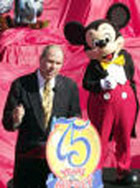
In the competition to lure corporate management, Delaware long ago won the great race to the bottom via its now infamous "business judgment rule." Under this rule, Delaware courts have held that the business decisions of management, no matter how mistaken, unprofitable, or deleterious to the corporation, could not be second guessed by judges or juries . "The law will not hold directors liable for honest errors," notes the Cylopedia of the Law of Private Corporations, "even though the errors may be so gross that they demonstrate the unfitness of the directors to manage the corporate affairs." The reasoning behind the business judgment rule is that shareholders elect their management every day they retain their shares in a company, therefore courts should not intervene if shareholders do not like the way their company is managed. The only exceptions are fraud, bad faith, and other gross abuse.
In light of the powerful shield afforded by this rule, most of the Fortune 500 companies are now incorporated in tiny Delaware Yet, despite it, and to the utter delight of the entertainment media, there is now unfolding in Delaware, a bizarre class-action suit against Disney’s past directors claiming that they erred in the handling of the dismissal of Michael Ovitz eight years ago.
The facts are straightforward: Disney CEO Michael Eisner hired Ovitz as a possible successor in 1995, then decided he made a mistake and, 14 months later fired him, with the approval of the Board and gave him a severance package of options and pay worth $140 million.
Even if the $140 million payoff was a bad business decision, it is precisely the sort of decision that is shielded from court intervention by Delaware’s business judgement rule. No fraud or self-dealing were involved in the decision, so to get the case to court, the dissident shareholders claimed that Disney’s directors acted in "bad faith."
"Bad faith" is very difficult to prove in Delaware. The court test for it is whether or not directors followed the prescribed procedures of a company in arriving at their decision. If they ignore their own procedures, they can be judged to be acting in bad faith; if they followed them, they are in the clear.
Consequently when a class-action suit like the Disney one gets to court, the directors are carefully coached by teams of lawyers as to what actions on their part would constitute a "good faith" decision. Not surprisingly, when the directors are then called on to testify they stick to this story, no matter how naive or silly it makes them sound to the public,
Such testimony of course is grist for the mill of journalists watching the Disney trial on close circuit television in Georgetown, Delaware, even if it is little more than well-rehearsed mantras, designed by lawyers to proof the witnesses, including Eisner and Ovitz. against a "bad faith" verdict.
So what then is this 8-year old Mickey Mouse trial really about? Since it is unlikely the court will order the directors to repay Ovitz’ compensation to the Disney treasury, all that can be expected from this exercise is the further embarrassment of Eisner by his Quixotic enemies Roy Disney and Stanley Gold.

